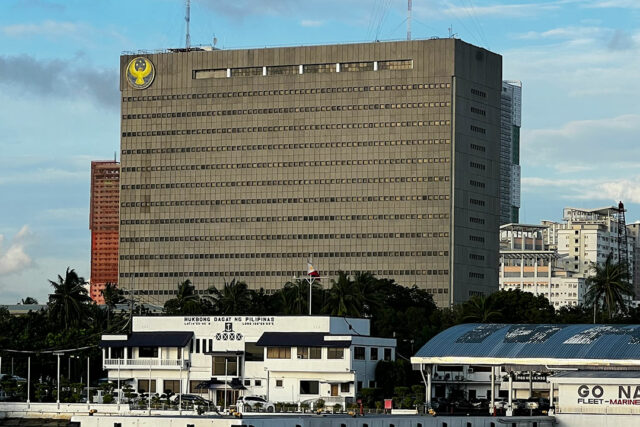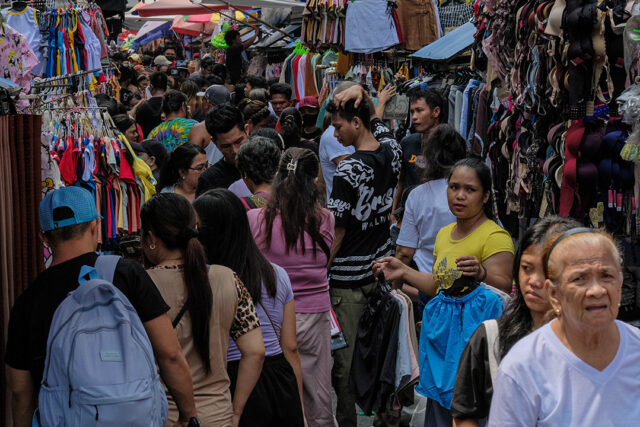THE AVERAGE annual income of Filipino families increased by 15% in 2023, as wages and quality of jobs improved, the Philippine Statistics Authority (PSA) said.
Preliminary data from the PSA showed that the average annual income of Filipino households rose to P353,230 in 2023 from P307,190 in 2021.
In 2023, the average annual spending of Filipino families went up by 12.8% to P258,050 from P228,800 in 2021.

The increase in income was attributed to the uptick in wages, salaries and entrepreneurial activities for the period, Undersecretary and National Statistician Claire Dennis S. Mapa told a news briefing.
By region, the National Capital Region (NCR) had the highest average annual family income in 2023 at P513,520, up by 22.9% from P417,850 in 2021.
Calabarzon followed in second place with P426,530 in 2023, up by 18.1% from P361,030 in 2021. This was followed by Central Luzon at P375,240 in 2023, 14.2% higher than P328,540 in 2021.
On the other hand, Bangsamoro Autonomous Region in Muslim Mindanao (BARMM) posted the lowest average annual family income at P206,880 in 2023, followed by Zamboanga Peninsula at P257,140 and Negros Island Region at P266,290.
In terms of expenditure, NCR also had the biggest annual average family spending at P385,050 in 2023, followed by Calabarzon at P310,320 and Central Luzon at P298,700.
BARMM also had the smallest average family expenditure at P168,910, followed by Mimaropa Region at P189,770 and Eastern Visayas at P199,910.
National Economic and Development Authority (NEDA) Secretary Arsenio M. Balisacan told BusinessWorld that the government is looking to improve the quality of jobs to increase Filipinos’ household incomes in the next few years,
“Quality of employment is the foremost priority of this administration because… we have historically low unemployment rate already. You can’t do any better than that now you know because that’s the kind of rate that you see in very mature economies,” he said.
In 2023, the jobless rate fell to a record low 4.3%. The underemployment rate — or the proportion of employed Filipinos looking for more work or longer working hours — declined to 12.3% in 2023 from 14.2% in 2022.
“The three-legged sources of economic growth, such as BPOs (business process outsourcing), OFW remittances, and tourism should be supplemented by growth in the manufacturing sector,” Union Bank of the Philippines, Inc., Chief Economist Ruben Carlo O. Asuncion said in a Viber message.
Mr. Asuncion also said the government must build the necessary digital infrastructure to help bolster growth.

PSA data also showed the Gini coefficient, which measures income inequality, slipped to 0.3909 in 2023 from 0.4063 in 2021, PSA data showed. A Gini coefficient reading of “0” would mean perfect equality, while “1” suggests perfect inequality.
POVERTY
Data from the PSA also showed the poverty rate dropped to 15.5% in 2023 from 18.1% in 2021 amid elevated inflation.
The number of poor Filipinos declined by 12.26% to 17.54 million in 2023 from 19.99 million in 2021.
“It’s good that the income increases faster than the food inflation. But, if food inflation will be lower, of course, the reduction in poverty could be much, much bigger,” Mr. Mapa said.
Inflation averaged 6% for 2023, the highest in 14 years. It also marked the second straight year that inflation breached the BSP’s 2-4% target band.
The PSA said a family with five members needed to have at least P13,873 a month to meet their minimum basic food and nonfood needs in 2023.
Among the regions, nine had poverty thresholds higher than the national average, led by Central Luzon with P16,046, followed by NCR with P15,713, and Calabarzon with P15,457.
On the other hand, the Soccsksargen Region posted the lowest poverty threshold with P12,241.
By region, the NCR recorded the lowest poverty incidence among the population at 1.8%, while the BARMM had the highest rate at 32.4%.
Meanwhile, the national poverty incidence among families with five members improved to 10.9% in 2023 from 13.2% in 2021. This is equivalent to 2.99 million Filipino families that do not have enough income to meet their basic food and nonfood needs.
Among the regions, NCR had the lowest poverty incidence at 1.1%, while the Zamboanga Peninsula had the highest at 24.2%.
The Caraga Administrative Region showed the biggest improvement as its poverty incidence declined by 11 percentage points to 14.9% in 2023 from 25.9% in 2021.
FOOD THRESHOLD
According to the PSA, the food threshold for a family of five rose by 14.7% to P9,581 in 2023 from P8,353 in 2021, mainly due to high food inflation. This would mean the food threshold per person in a day is at P64.
Food threshold refers the minimum income an individual or a family needs to meet their basic food needs, “which satisfies the nutritional requirements for economically necessary and socially desirable physical activities.”
Mr. Mapa said the food threshold is based on a sample food bundle with three meals and snacks.
Based on the national food bundle, breakfast is composed of scrambled egg, coffee and boiled rice or rice-corn mix, while lunch is boiled monggo with malunggay and dried dilis, banana and boiled rice. Dinner is composed of fried fish or boiled pork, vegetables and boiled rice, while snacks include bread and boiled root crops.
“This is really basic,” Mr. Mapa said. “Most probably, a lot of people will not be happy about it. But that’s how the bundle was arrived at. And of course, there’s science to it.”
Mr. Mapa said the PSA is reviewing the methodology used for the food poverty threshold.
“There is a review process that we’re doing and as I said we have already initiated to the technical staff ng PSA to review our methodology, the menu,” Mr. Mapa said in mixed English and Filipino. — BMDC





















